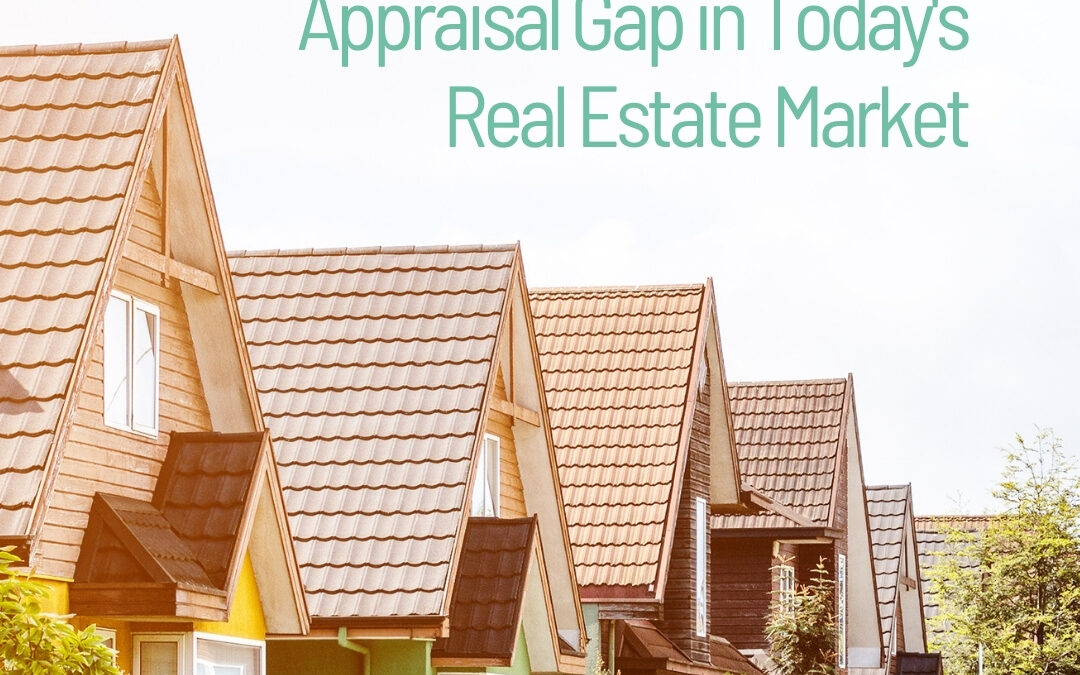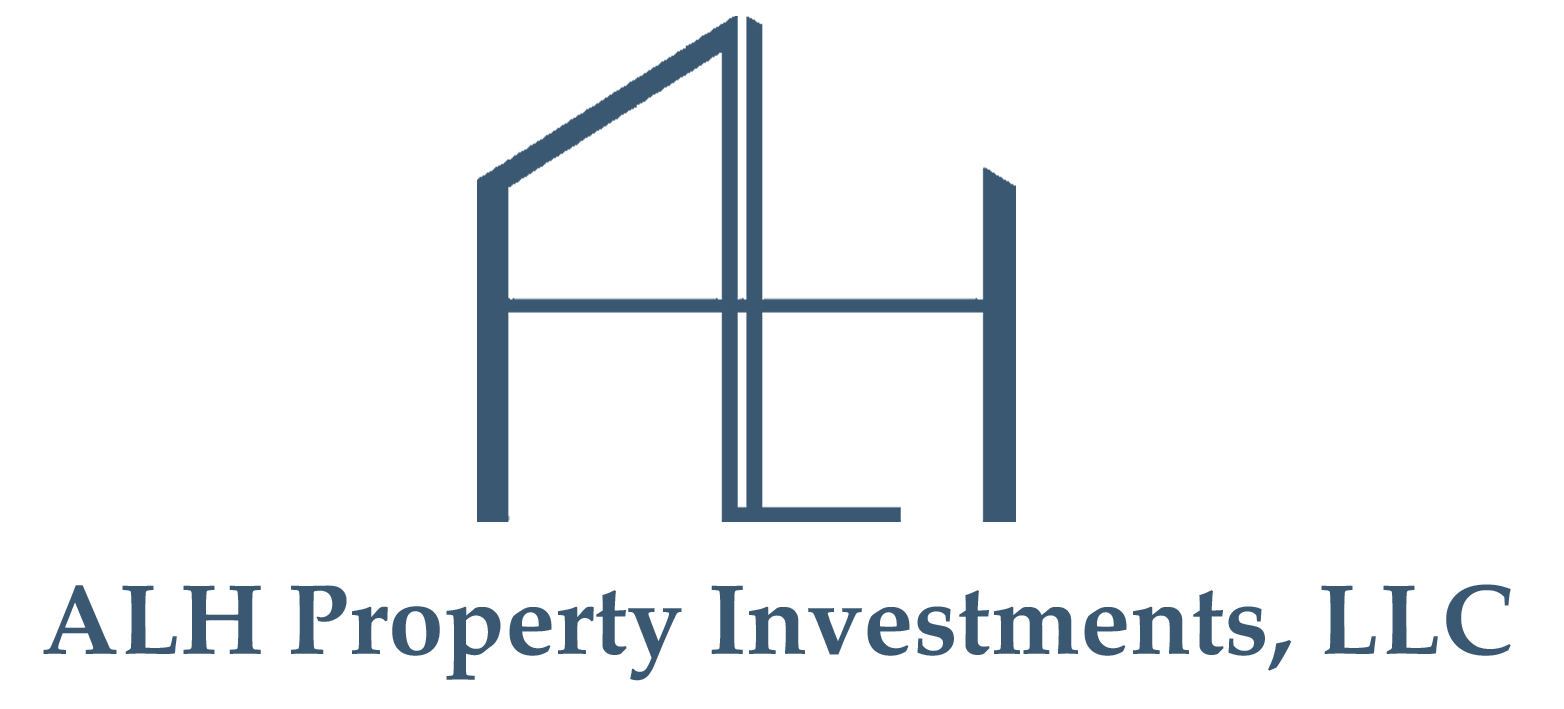
by admin | Mar 31, 2022 | Uncategorized
How to Bridge the Appraisal Gap in Today’s Real Estate Market
If you’re searching for drama, don’t limit yourself to Netflix. Instead, tune in to the real estate market, where the competition among buyers has never been fiercer. And with homes selling for record highs,1 the appraisal process—historically a standard part of a home purchase—is receiving more attention than ever.
That’s because some sellers are finding out the hard way that a strong offer can fizzle quickly when an appraisal comes in below the contract price. Traditionally, the sale of a home is contingent on a satisfactory valuation. But in a rapidly appreciating market, it can be difficult for appraisals to keep pace with rising prices.
Thus, many sellers in today’s market favor buyers who are willing to guarantee their full offer price—even if the property appraises for less. For the buyer, that could require a financial leap of faith that the home is a solid investment. It also means they may need to come up with additional cash at closing to cover the gap.
Whether you’re a buyer or a seller, it’s never been more important to understand the appraisal process and how it can be impacted by a quickly appreciating and highly competitive housing market. It’s also crucial to work with a skilled real estate agent who can guide you to a successful closing without overpaying (if you’re a buyer) or overcompensating (if you’re a seller). Find out how appraisals work—and in some cases, don’t work—in today’s unique real estate environment.
APPRAISAL REQUIREMENTS
An appraisal is an objective assessment of a property’s market value performed by an independent authorized appraiser. Mortgage lenders require an appraisal to lower their risk of loss in the event a buyer defaults on their loan. It provides assurance that the home’s value meets or exceeds the amount being lent for its purchase.
In most cases, a licensed appraiser will analyze the property’s condition and review the value of comparable properties that have recently sold. Mortgage borrowers are usually expected to pay the cost of an appraisal. These fees are often due upfront and non-refundable.2
Appraisal requirements can vary by lender and loan type, and in today’s market in-person appraisal waivers have become much more common. Analysis of the property, the local market, and the buyer’s qualifications will determine whether the appraisal will be waived. Not all properties or buyers will qualify, and not all mortgage lenders will utilize this system.3 If you’re applying for a mortgage, be sure to ask your lender about their specific terms.
If you’re a cash buyer, you may choose—but are not obligated—to order an appraisal.
APPRAISALS IN A RAPIDLY SHIFTING MARKET
An appraisal contingency is a standard inclusion in a home purchase offer. It enables the buyer to make the closing of the transaction dependent on a satisfactory appraisal wherein the value of the property is at or near the purchase price. This helps to reassure the buyer (and their lender) that they are paying fair market value for the home and allows them to cancel the contract if the appraisal is lower than expected.
Low appraisals are not common, but they are more likely to happen in a rapidly appreciating market, like the one we’re experiencing now.4 That’s because appraisers must use comparable sales (commonly referred to as comps) to determine a property’s value. These could include homes that went under contract weeks or even months ago. With home prices rising so quickly,5 today’s comps may be lagging behind the market’s current reality. Thus, the appraiser could be basing their assessment on stale data, resulting in a low valuation.
HOW ARE BUYERS AND SELLERS IMPACTED BY A LOW APPRAISAL?
When a property appraises for less than the contract price, you end up with an appraisal gap. In a more balanced market, that could be cause for a renegotiation. In today’s market, however, sellers often hold the upper hand.
That’s why some buyers are using the potential for an appraisal gap as a way to strengthen their bids. They’re proposing to take on some or all of the risk of a low appraisal by adding gap coverage or a contingency waiver to their offer.
Appraisal Gap Coverage
Buyers with some extra cash on hand may opt to add an appraisal gap coverage clause to their offer. It provides an added level of reassurance to the sellers that, in the event of a low appraisal, the buyer is willing and able to cover the gap up to a certain amount.6
For example, let’s say a home is listed for $200,000 and the buyers offer $220,000 with $10,000 in appraisal gap coverage. Now, let’s say the property appraises for $205,000. The new purchase price would be $215,000. The buyers would be responsible for paying $10,000 of that in cash directly to the seller because, in most cases, mortgage companies won’t include appraisal gap coverage in a home loan.6
Waiving The Appraisal Contingency
Some buyers with a higher risk tolerance—and the financial means—may be willing to waive the appraisal contingency altogether. However, this strategy isn’t for everyone and must be considered on a case-by-case basis.
It’s important to remember that waiving an appraisal contingency can leave a buyer vulnerable if the appraisal comes back much lower than the contract price. Without an appraisal contingency, a buyer will be obligated to cover the difference or be forced to walk away from the transaction and relinquish their earnest money deposit to the sellers.7
It’s vital that both buyers and sellers understand the benefits and risks involved with these and other competitive tactics that are becoming more commonplace in today’s market. We can help you chart the best course of action given your individual circumstances.
DON’T WAIVE YOUR RIGHT TO THE BEST REPRESENTATION
There’s never been a market quite like this one before. That’s why you need a master negotiator on your side who has the skills, instincts, and experience to get the deal done…no matter what surprises may pop up along the way. If you’re a buyer, we can help you compete in this unprecedented market—without getting steamrolled. And if you’re a seller, we know how to get top dollar for your home while minimizing hassle and stress. Contact us today to schedule a complimentary consultation.
Sources:
- Wall Street Journal –
https://www.wsj.com/articles/u-s-home-prices-push-to-record-high-slowing-pace-of-purchases-11621605953
- US News & World Report – https://realestate.usnews.com/real-estate/articles/what-is-a-home-appraisal-and-who-pays-for-it
- Rocket Mortgage –
https://www.rocketmortgage.com/learn/appraisal-waiver
- Money –
https://money.com/coronavirus-low-home-appraisal/
- S&P CoreLogic Case-Shiller 20-City Composite Home Price NSA Index – https://www.spglobal.com/spdji/en/indices/indicators/sp-corelogic-case-shiller-20-city-composite-home-price-nsa-index/#overview
- Bigger Pockets –
https://www.biggerpockets.com/blog/appraisal-gap-coverage
- Washington Post –
https://www.washingtonpost.com/realestate/competitive-buyers-waive-contingencies-to-score-homes-in-tight-market/2021/06/02/d335b050-af2c-11eb-b476-c3b287e52a01_story.html

by admin | Mar 13, 2022 | Uncategorized
Last year was one for the real estate history books. The pandemic helped usher in a buying frenzy that caused home prices to soar nationwide by a record 19.9% between August 2020 and August 2021.1
However, there were signs in the fourth quarter that the red-hot housing market was beginning to simmer down. In the month of October, only 60.3% of sales involved a bidding war—down from a high of 74.5% in April.2 While this trend could be attributed to seasonality, it could also be a signal that the real estate run-up may have passed its peak.
So what’s ahead for the U.S. housing market in 2022? Here’s where industry experts predict the market is headed in the coming year.
MORTGAGE RATES WILL CREEP UP
Most economists expect to see mortgage rates gradually rise this year after hitting record lows in late 2020 and early 2021.3
Freddie Mac forecasts the 30-year fixed-rate mortgage will average 3.5% in 2022, up from around 3% in 2021.4
The Mortgage Bankers Association predicts that rates will tick up to 4% by the end of the year. “Mortgage lenders and borrowers should expect rising mortgage rates over the next year, as stronger economic growth pushes Treasury yields higher,” said Mike Fratantoni, chief economist for the Mortgage Bankers Association at their 2001 Annual Convention & Expo in October.5
However, it’s important to keep in mind that even a 4% mortgage rate is low when compared to historical standards. According to industry trade blog The Mortgage Reports, “Between 1971 and December 2020, 30-year mortgage rates averaged 7.89%.”6
What does it mean for you? Low mortgage rates can reduce your monthly payment and make homeownership more affordable. Fortunately, there’s still time to lock in a historically-low rate. Whether you’re hoping to purchase a new home or refinance an existing mortgage, act soon before rates go up any further. We’d be happy to connect you with a trusted lending professional in our network.
THE MARKET WILL BECOME MORE BALANCED
In 2021, we experienced one of the most competitive real estate markets ever. Fears about the virus and a shift to remote work triggered a huge uptick in demand. At the same time, many existing homeowners delayed their plans to sell, and supply and labor shortages hindered new construction.
This led to an extreme market imbalance that benefitted sellers and frustrated buyers. According to George Ratiu, director of economic research at Realtor.com, “Prices and sellers reached for the moon [last] year. It looks like we are now about to move back to earth.”7
Data from Realtor.com released in November showed that listing price reductions had more than doubled since February 2021. And the average days on market (an indicator of how long it takes a home to sell) has been slowly creeping up since June.7
What’s causing this change in market dynamics? The real estate market typically slows down in the fall and winter. But economists also suspect a fundamental shift in supply and demand.
At the National Association of Realtors’ annual conference last November, the group’s chief economist, Lawrence Yun, told attendees that he expects increased supply to come from an uptick in new construction—which is already underway—and an end to the mortgage forbearance program. “With more housing inventory to hit the market, the intense multiple offers will start to ease,” he said.8
Demand is also predicted to wane slightly in the coming year. Rising mortgage rates and record-high prices have made homeownership unaffordable for a growing number of Americans. And in a recent Reuters poll, nearly 80% of property analysts said they expect housing affordability to worsen over the next several years.9
What does it mean for you? If you struggled to buy a home last year, there may be some relief on the horizon. Increased supply and softening demand could make it easier to finally secure the home of your dreams. If you’re a seller, it’s still a great time to cash out your big equity gains! And with more inventory on the market, you’ll have an easier time finding your next home. Reach out for a free consultation so we can discuss your specific needs and goals.
HOME PRICES LIKELY TO KEEP CLIMBING, BUT AT A SLOWER PACE
Nationally, home prices rose an estimated 16.8% in 2021.8 But the average rate of appreciation is expected to slow down in 2022.
Danielle Hale, chief economist at Realtor.com, told Yahoo! News, “Home asking prices have decelerated in the second half of 2021, with median listing price growth slipping from a peak of 17.2% in April to just 8.6% in October.”10
But experts disagree about how much more property values can continue to climb this year. Goldman Sachs predicts that home prices will rise by 13.5%, while Fannie Mae and Freddie Mac are forecasting a 7.9% and 7% rate of appreciation, respectively.2
However, not all analysts are as bullish. The National Association of Realtors predicts a 2.8% rate of appreciation for existing homes and 4.4% for new homes, while the Mortgage Bankers Association expects the average home price to decrease by 2.5% by the end of the year.10,2
According to Hale, “With prices near all-time highs and mortgage rates expected to rise, we expect this slowdown in prices to continue.”10
What does it mean for you? If you’re a buyer who has been waiting on the sidelines for home prices to drop, you may be out of luck. Even if home prices dip slightly (and most economists expect them to rise) any savings are likely to be offset by higher mortgage rates. The good news is that decreased competition means more choice and less likelihood of a bidding war. We can help you get the most for your money in today’s market.
RENTS WILL CONTINUE TO RISE
Along with home, gasoline, and used vehicle prices, rent prices rose dramatically last year. According to CoreLogic, in September, rents for single-family homes were up 10.2% nationally year over year.11 And economists at Realtor.com expect them to climb another 7.1% in 2022.12
“Homes are expensive now…but for most people, the comparison that is most important is how that cost of homeownership is going to compare to the cost of renting,” Zillow Senior Economist Jeff Tucker told CNBC in November.13
Tucker also pointed out that rent is less predictable than a mortgage—and more likely to go up along with inflation.13
Real assets, like real estate, are often used as a hedge against inflation. That’s because property values typically rise with inflation.14 And when a homeowner takes out a mortgage, they lock in a set housing payment for the next 30 years.
In contrast, renters are at the mercy of the market—and they don’t gain any of the benefits of homeownership, like tax deductions, equity, or appreciation.
George Ratiu of Realtor.com told CNBC that he advises buyers to consider their budget and time frame. If they plan to stay in the home for at least three to five years, he believes it often makes sense to buy.13
Fortunately, it’s shaping up to be a better year for buyers. “I think 2022 has the promise of providing less competition, a lot more homes to choose from, and, as a result, a lot more approachable prices,” Ratiu said.13
What does it mean for you? Both property and rent prices are expected to continue rising. But when you purchase a home with a fixed-rate mortgage, you can rest assured knowing that your monthly mortgage payment will never go up. Whether you’re a first-time homebuyer or a real estate investor, we can help you make the most of today’s real estate market.
WE’RE HERE TO GUIDE YOU
While national real estate numbers and predictions can provide a “big picture” outlook for the year, real estate is local. And as local market experts, we can guide you through the ins and outs of our market and the local issues that are likely to drive home values in your particular neighborhood.
If you’re considering buying or selling a home in 2022, contact us now to schedule a free consultation. We’ll work with you to develop an action plan to meet your real estate goals this year.
Sources:
- Fortune –
https://fortune.com/2021/11/04/us-home-prices-real-estate-forecast-2022-outlook/
- Fortune –
https://fortune.com/2021/11/29/housing-market-real-estate-predictions-2022-forecast/
- Freddie Mac –
http://www.freddiemac.com/pmms/pmms30.html
- Freddie Mac – https://freddiemac.gcs-web.com/news-releases/news-release-details/freddie-mac-strong-housing-market-will-continue-even-rates-and
- Mortgage Bankers Association –
https://www.mba.org/2021-press-releases/october/mba-annual-forecast-purchase-originations-to-increase-9-percent-to-record-173-trillion-in-2022
- The Mortgage Reports –
https://themortgagereports.com/61853/30-year-mortgage-rates-chart
- Realtor.com –
https://www.realtor.com/news/trends/has-housing-market-peaked/
- National Association of Realtors –
https://www.nar.realtor/newsroom/nars-yun-says-housing-market-doing-well-may-normalize-in-2022
- Reuters –
https://www.reuters.com/world/us/rise-us-house-prices-halve-next-year-affordability-worsen-2021-12-07/
- Yahoo! News –
https://www.yahoo.com/now/where-home-prices-headed-2022-130012748.html
- CNBC –
https://www.cnbc.com/2021/11/16/inflation-rent-for-single-family-homes-surged-10percent-in-september.html
- Realtor.com –
https://www.realtor.com/news/trends/what-to-expect-in-2022-housing-market/
- CNBC –
https://www.cnbc.com/2021/11/23/rising-inflation-hot-housing-market-what-you-need-to-know-about-buying-a-home.html
- Money –
https://money.com/inflation-2021-stocks-bitcoin-gold-reits-commodities/


